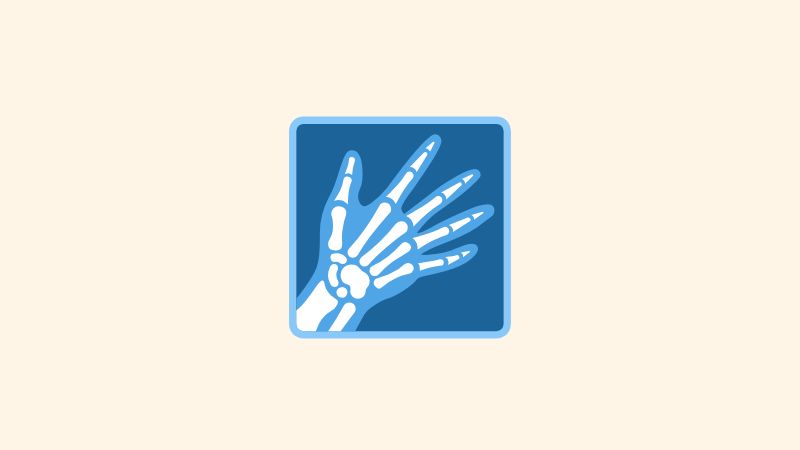Complications
What can happen if coeliac disease is left untreated



Fast Facts:
If gluten isn't avoided, coeliac disease can lead to serious complications, including:
🩸 Malabsorption - Poor nutrient absorption
🦴 Osteoporosis - Weakened bones and fracture risk
🥱 Malnutrition - Severe nutrient loss
🥛 Lactose intolerance - Temporary dairy sensitivity
🦠 Cancer risk - Slightly increased risk of gut cancers
🫄 Pregnancy - Higher risk of miscarriage or low birth weight
Following a strict gluten free diet helps prevent these complications.
❓ What Are the Complications of Coeliac Disease?
Complications of coeliac disease typically only affect people who continue to eat gluten after diagnosis, or those who remain undiagnosed, which can be a common problem in milder cases. That's why it's so important to stick to a gluten free diet once diagnosed.
👉🏽 Click here to read about how coeliac disease is diagnosed.
🩸 Malabsorption
Malabsorption occurs when your small intestine cannot absorb essential nutrients properly. Common deficiencies include:
- Iron - Can lead to iron-deficiency anaemia, causing fatigue and weakness
- Vitamin B12 & Folate - Low levels can cause megaloblastic anaemia, leading to dizziness, tiredness, and shortness of breath
- Calcium & Vitamin D - Increases the risk of osteoporosis
🦴 Osteoporosis
Osteoporosis (weakened bones) leads to around 300,000 fractures each year in the UK, and 9 million globally. Studies show that up to 75% of people with coeliac disease have low bone mineral density at diagnosis - but this often improves significantly after 1 year on a gluten free diet.
Risk factors include:
- Late or missed diagnosis
- Not sticking to a gluten free diet
- Ongoing gut damage (villous atrophy)
- Low body weight and lactose intolerance
- Ageing, menopause, smoking, inactivity
- Certain medications (e.g. steroids)
If you are concerned, speak to your GP or Consultant - they may refer you for a DEXA scan to check your bone health.
🥱 Malnutrition
In severe cases, coeliac disease can lead to malnutrition, where your body lacks the nutrients it needs to function or recover properly.
Symptoms include:
- Fatigue, confusion, and dizziness
- Muscle weakness and unintended weight loss
- In children: delayed development and stunted growth
Treatment may involve high-calorie diets and nutritional supplements under medical supervision.
🧠 Neurological Problems
Up to 60% of people with coeliac disease have neurological symptoms at diagnosis - yet these are often overlooked or misdiagnosed. Those with non-gut symptoms are typically diagnosed almost 10 years later on average.
Common neurological complications include:
- Peripheral neuropathy - Tingling, pain, numbness in hands and feet
- Ataxia - Poor coordination, clumsiness, slurred speech
- Cognitive issues - Brain fog, memory lapses, poor focus
- Mental health symptoms - Anxiety, depression, and mood swings
It's important to note that potential mental health impacts, such as anxiety and depression, can arise from both the condition itself and the stress of managing to a strict gluten free diet.
🥛 Lactose Intolerance
Untreated coeliac disease can lead to temporarily lactose intolerance. This happens when gut damage reduces the enzyme needed to digest lactose (the natural sugar in dairy).
Symptoms include: bloating, diarrhoea, and stomach discomfort after consuming milk or dairy.
The good news? Lactose intolerance often improves once your gut heals. Until then:
- Use lactose-free dairy alternatives
- Consider calcium supplements to meet your daily needs
🦠 Increased Cancer Risk
Cancer is a very rare but serious complication of untreated coeliac disease. Someone with untreated coeliac disease has a slightly increased risk of developing certain rare gut cancers, including:
- Small bowel cancer
- Small bowel lymphoma
- Hodgkin lymphoma
However, recent research shows the risk is lower than previously thought and returns to normal (same as that of the general population) once a gluten free diet is followed.
🫄 Pregnancy and Coeliac Disease
If coeliac disease is undiagnosed or not well-managed during pregnancy, it may increase the risk of:
- Recurrent miscarriages
- Low birth weight
- Premature birth
Following a gluten free diet and getting the right nutrients is essential for both maternal health and baby's development.
🎯 Quick Recap:
Untreated coeliac disease can cause serious complications - from bone loss and malnutrition to fertility issues, cancer, and nerve problems. Most of these complications are preventable by sticking to a strict gluten free diet, staying informed, and keeping up with regular check-ins with your GP or specialist.
👉🏽 Read more about getting an annual coeliac review here.